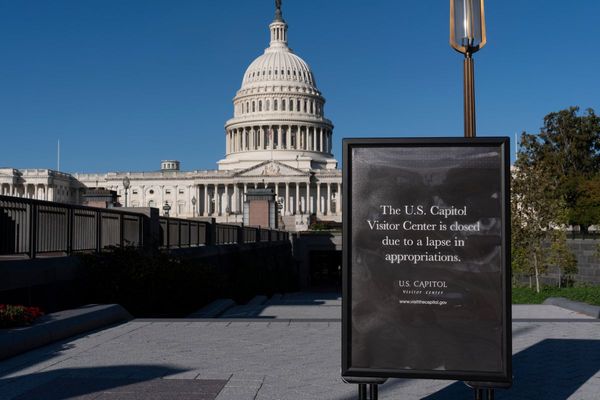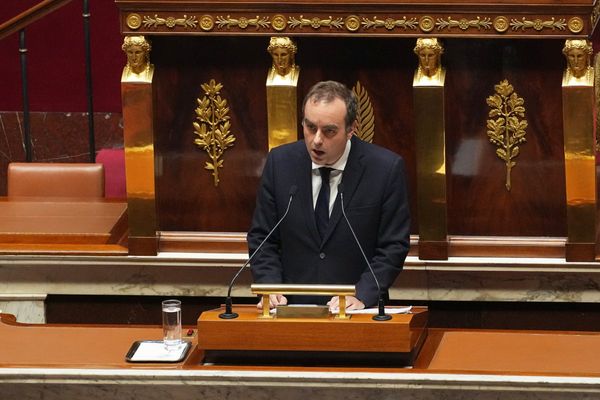In his mid 20s, David Booth spent two years as a teaching assistant at the University of Chicago's business school. But Booth found the experience unsatisfying.
"You can focus on making the best lecture you can," he said. "But a lot of teaching is motivating students to learn, and there are some students you can't reach."
Booth decided he didn't want to become a professor. Instead, he pursued investing.
Shifting his focus proved fortuitous. At 35, he cofounded Dimensional Fund Advisors (DFA), an investment firm. Today, DFA is a global investment manager with more than $800 billion in assets under management. And Booth, the company's chairman, is a billionaire.
Booth, 78, grew his firm into a powerhouse by blazing a new path. DFA differentiated itself by applying groundbreaking academic ideas about investing strategy. As a University of Chicago business school student years earlier, Booth gravitated to these ideas.
His teachers included a handful of future Nobel Prize winners. He served as a teaching assistant to one of them, Eugene Fama.
"These ideas were sitting out there ready to be taken advantage of," Booth told IBD.
Booth harnessed the efficient market hypothesis to set DFA apart. Simply put, because stock prices integrate all available information, it's fruitless to try to attain long-term market-beating returns or outperform the market by picking stocks.
Booth and his founding team thus became pioneers of passive portfolio management. Rather than seek to outguess the market, they sought to replicate the market.
David Booth: Be An Educator At Heart
Booth isn't shy about the not-so-secret sauce that drove DFA's success. Throughout his career, he has sought to educate investors about the firm's investment philosophy — how it evolved and why it works.
To reach a larger audience, he financed a documentary from Academy Award-winning director Errol Morris, "Tune Out the Noise."
In telling DFA's story, the 88-minute film captures the excitement of turning innovative research by a group of quirky but brilliant academics into a whole new way for individuals to invest.
In 1981, Booth started DFA in a spare bedroom in his cramped Brooklyn apartment. He teamed with Rex Sinquefield, another University of Chicago business school student, to launch the company.
They enlisted some of their former professors and mentors, including Eugene Fama, to form a founding brain trust.
Booth served as the firm's CEO — and later co-CEO — until 2017. During that time, it grew into a colossus with about 1,250 employees and an impressive track record that proved Booth and his cofounders were right.
As a leader, Booth cultivated a culture that reflected his intellectual curiosity. He encouraged employees to bat around ideas and innovate.
He cites a pivotal moment in late 2003 when he shared his vision for DFA's future with the firm's workforce. In a quarterly update with his entire team — then about 160 employees — he stepped back to see the big picture.
"I thought we needed to build out our infrastructure more" for DFA to attain next-level growth, he said.
"Over the next 15 years, let's plan on going from $50 billion to $500 billion in assets under management," he told his employees. "To do that, we've got to do things differently."
Booth assured his team that the company would commit the resources to invest in its growth. He also clarified that he wasn't making a forecast.
"It was more of a motivation to envision our future," he said. "Fifteen years earlier, we had $5 billion in assets under management," so he wanted to maintain the firm's momentum.
Spur Fast Growth With Bold Vision
Employees embraced Booth's vision. And he welcomed their enthusiasm.
"I asked, 'In your unit, what do you need to invest in over the long haul to behave like a large money management firm?'" he said. "People came up with ideas I never would've thought of."
The firm hit its stride over those 15 years, exceeding Booth's target. Yet he admits it wasn't part of some master plan.
"I just blurted it out (in 2003)," he said. "It was spontaneous. But it worked."
Create A Brave Workforce
He created a climate of openness and receptiveness to wide-ranging ideas. Employees felt safe making bold suggestions.
"I always tried really hard never to say no," Booth said. "If people have the nerve to challenge the direction you're going, they've probably thought it out. My instinct is to reply, 'Why don't we give it a try?'"
Passive investing faced resistance early on. It didn't faze Booth.
Active stock pickers called passive strategies "un-American." Some stock brokers viewed passive strategies as a threat to their business.
"There were definitely ad hominem attacks," Booth said. "All we could do was say, 'Here's all the evidence. We think it's overwhelming. Here are our relevant theories and best ideas. Others can interpret them differently.'"
But that didn't mollify every critic. Some just wouldn't let up. Calm and analytical by nature, Booth refused to be rattled.
"Eventually we'd say, 'That's not our view of the world,'" he recalled. "You keep up and I'll keep up and in 20 years, we'll compare notes.'"
Booth also kept his composure after the October 1987 market crash. He told anxious investors, "We control what we can control. With all the craziness, there's nothing we can do except pay attention and play for the long haul."
Persevere Amid A Downturn
For Booth, the ability to take volatility in stride, while remaining adaptive and flexible, is vital to success in business and in life.
"Often, the best response (to volatile markets) is, 'Don't just do something. Stand there'" he said. "You set aside emotion, track relevant data and collect the best information you can."
Booth's faith in data proved irresistible to DFA's early investors.
"When they started the company, David and Rex had never managed money," said Robert C. Merton, a Nobel Prize winner who has known Booth for more than three decades. "They had no track record."
Yet they calmly explained to sophisticated institutional investors the science and data behind the methodology. The investors bought in.
"The pension funds were convinced it was right in theory," Merton said. "The key uncertainty was, 'Can the theory actually be executed at low enough cost to work in practice?'"
Booth's fortitude was soon tested. During its first nine years, DFA underperformed the general market because its focus on small-cap stocks worked against it.
Yet the pension funds stayed with DFA because it consistently demonstrated its strategy could work in practice. Once the execution was proven, the funds never doubted the process would eventually produce long-term, market-beating returns, Merton says.
"David exudes trustworthiness and competence," he added. "That sense of trust, of stability, gives customers and employees an anchor" to persevere and stay the course.
David Booth's Keys:
- Billionaire cofounder of Dimensional Fund Advisors, an investment firm that applied groundbreaking academic research to set itself apart.
- Overcame: Resistance from critics of passive investing who engaged in ad hominem attacks.
- Lesson: "At the end of it all, it's about implementation of the great ideas — and these ideas are much bigger than the firm."







